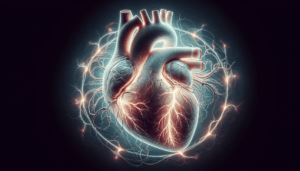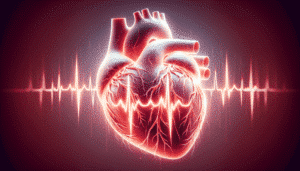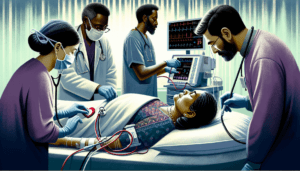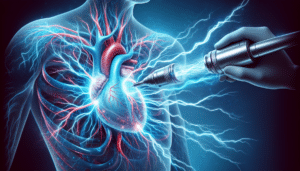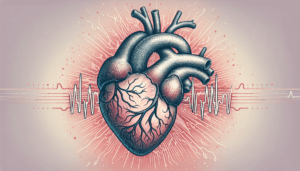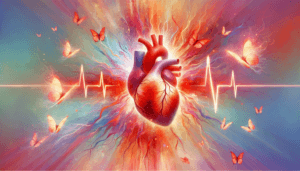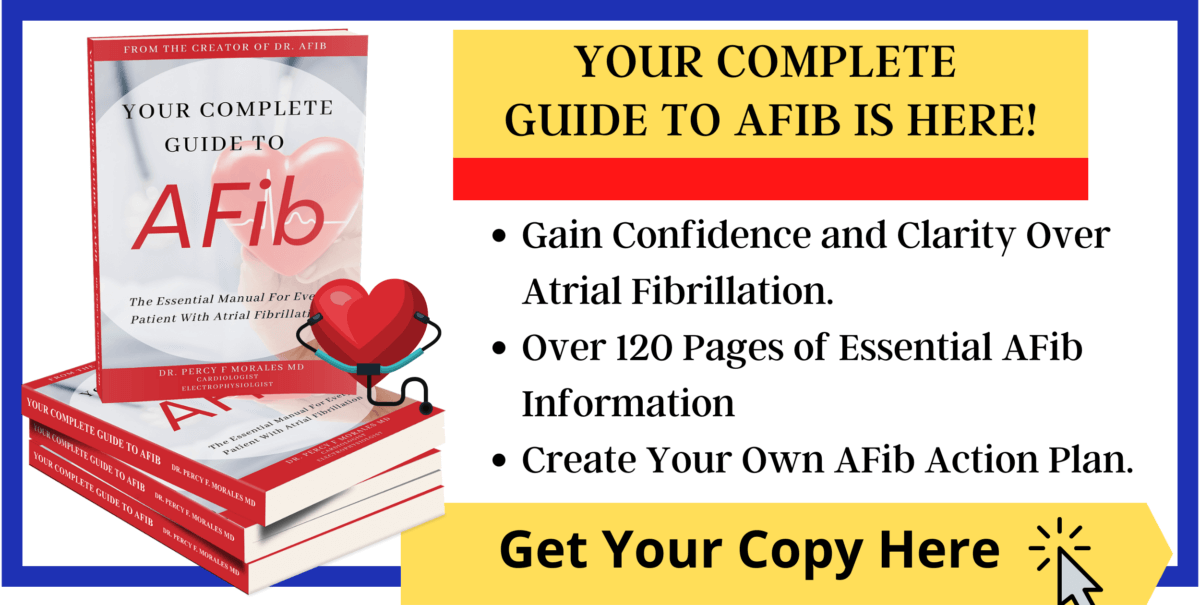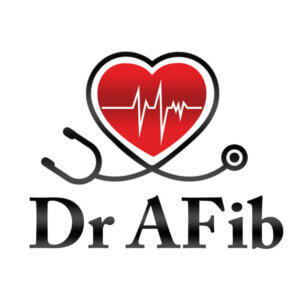When to Worry About Heart Palpitations — Everything You Need To Know
When to worry about heart palpitations? Heart palpitations are a common symptom of many arrhythmias (abnormal heart rhythms), including atrial fibrillation, the most common heart arrhythmia worldwide, — but that isn’t the only possible cause of these often sudden and frightening events.
Whether it feels like butterflies in your chest or like your heart skipped a beat, heart palpitations often appear seemingly out of the blue, catching people off guard. As one of the most essential organs in the human body, any change to your heart’s baseline rhythm can trigger stress and anxiety that something is wrong. But, in the case of heart palpitations, this isn’t always the case — but that doesn’t mean you should brush your concerns off completely.
Heart palpitations are a common experience — and in many cases, they aren’t indicative of any serious medical condition. But, if you begin to experience more regular heart palpitations associated with a specific trigger like stress, exercise, or from taking a medication or supplement, your symptoms may be a sign of an underlying health condition that needs to be addressed.
With this in mind, I want to share some important information about when you should go see your doctor if you experience heart palpitations — including how to identify symptoms and what testing you can expect to determine a diagnosis.
So, while not every mild heart palpitation requires immediate medical attention, I hope this article is a helpful educational resource for those looking to learn more about maintaining their cardiac health.
What are Heart Palpitations?
To better understand how to respond to a sudden episode of heart palpitations, we first need to understand what a heart palpitation is in reference to the heart’s function.
The human heart is an essential organ that contracts at a steady and rhythmic pace to move blood around our entire body. A heart rate of 60-100 beats per minute (bpm) is considered to be normal. But in some cases, people can develop an extra-systole — which is an occasional out-of-rhythm extra heartbeat or palpitation. These extra heartbeats can come from the top chambers of the heart (PACs or premature atrial complexes) or the bottom chambers of the heart (PVCs or premature ventricular complexes).
Currently, we do not know the specific pathway that causes heart palpitations in everyone, despite how common they are. Capable of being caused by a variety of different factors (ranging from cardiac disease to psychological stress or dietary intake), it can be hard to identify the underlying cause of sudden heart palpitations — but we do know that in many cases, mild and occasional heart fluttering is a benign and non-life-threatening condition.
When to Worry About Heart Palpitations: What do Heart Palpitations Feel Like?
Depending on the severity and duration of your heart palpitations, you may experience different sensations during an episode. Most commonly felt in the chest, some of the most common descriptors and symptoms of heart palpitations include:
-
A sudden fluttering feeling (sometimes described as butterflies in the chest)
-
Feeling like your heart skipped a beat or temporarily is offbeat
-
A pounding feeling in the chest
-
Flip-flopping of your heart rhythm
-
Spontaneous increase in heart rate
Common Causes of Heart Palpitations
Because our heart is connected to so many different areas of our body, it should come as no surprise that there are a variety of different potential causes for heart palpitations. Ranging from a reaction to your diet to an underlying cardiac disease, some of the most common causes of heart palpitations include:
-
Chronic stress and anxiety — When you experience periods of stress and anxiety (from work, your personal lives, etc.), it can take a toll on their overall cardiac health and cause physical symptoms. During a panic attack or time of high stress, it is possible for someone to develop an elevated heart rate, chest pain, and heart palpitations.
-
Sleep deprivation — As an essential component to optimal health, our sleep quality is actually tied to our heart health. When you experience poor sleep on a regular basis, you are at a higher risk of developing a higher resting heart rate, an irregular heart rhythm, and heart palpitations.
-
Overexerting yourself during exercise and dehydration — While strenuous exercise can offer a good and healthy challenge, overexerting yourself during a workout can result in the development of heart palpitations. When our body gets dehydrated and fatigued from too much exercise, it is possible to develop short-term heart palpitations during your post-workout recovery period. Staying hydrated is very important during exercise.
-
Certain Medications and Supplements. A variety of prescription medications can cause palpitations, including, but not limited to: inhalers for asthma, some high blood pressure medications, some thyroid medications. Over the counter cough and cold medications can also lead to palpitations due to stimulants in decongestants. In addition, many herbal and nutritional supplements can cause palpitations.
-
Drugs and Alcohol. This can include tobacco and stimulant drugs such as cocaine or amphetamines.
-
Atrial Fibrillation — As the most common heart arrhythmia diagnosed across the country, atrial fibrillation is often associated with recurrent episodes of heart palpitations. Causing an irregular and elevated heart rate, many people diagnosed with AFib will experience either occasional or constant feelings of chest fluttering and palpitations. Recurrent episodes of heart palpitations are one of the primary signs that you need to speak with your doctor to receive diagnosis or treatment for your symptoms. Through some of the diagnostic testing listed below, your doctor can identify if you palpitations are due to a serious heart condition, such as atrial fibrillation. Atrial Fibrillation increases risk of stroke for most people, so it is is very important to be tested for AFib by your doctor.
When to Worry About Heart Palpitations: When to Take Heart Palpitations Seriously
So, now that we know more about heart palpitations, how does someone know when their symptoms require medical attention?
In many cases, one-off and short-lived heart palpitations are nothing to be concerned about. But, that being said, there are situations that can warrant a medical check-up. If you or someone you love is or has experienced any of the following situations while having symptoms of heart palpitations, I advise seeking medical attention:
-
You experience heart palpitations lasting for multiple minutes at a time
-
You have chest pain, shortness of breath, or dizziness with your palpitations
-
You have been diagnosed with other heart conditions (including atrial fibrillation)
-
You are taking a new medication with heart palpitations as a potential side effect
-
You have been experiencing heart palpitations regularly (multiple times in a day/week)
During a consultation for heart palpitations, your primary care provider will likely ask you a series of questions about your medical history while also listening to your heart. Depending on the severity of your symptoms and pre-existing medical comorbidities, they may order additional diagnostic tests to determine if there is an underlying cause for your palpitations. In addition, a referral to a cardiologist may be needed depending on the severity of your symptoms. Many of these diagnostic tools are also used to diagnose common arrhythmias such as atrial fibrillation.
Examples of diagnostic assessments for heart palpitations include:
-
Electrocardiogram (ECG) — As a non-invasive diagnostic test, an ECG involves placing sticky electrodes onto your chest to map the electrical activity of your heart. It is painless and can help your doctor better understand the rhythm and rate of your heart (though it can be inconclusive if you are not experiencing palpitations during the testing period).
-
Holter and cardiac event monitoring — Using a portable ECG device, Holter monitoring can give a more full-picture view of your heart’s electrical activity. Often worn for multiple days continuously, the information collected during this testing can be very helpful in diagnosing underlying cardiac arrhythmias such as atrial fibrillation.
-
Echocardiogram — Another non-invasive procedure, an echocardiogram uses ultrasound waves to create an image of the heart. This can be helpful in determining if your symptoms are coming from a structural issue in the heart.
Putting It All Together
So, as we can see, there are a lot of nuances when it comes to seeking treatment for heart palpitations. In many cases, the occasional mild flutter of your heart isn’t something you really need to worry about — but that isn’t always the case.
More serious cardiac conditions (including atrial fibrillation) can often present themselves with mild chest pain and heart palpitations during the early stages. The key differences that you may notice between a benign heart flutter and something that requires medical attention is the frequency, duration, and severity of your symptoms. So, if you or someone you love has been experiencing heart palpitations that are lasting for longer, occurring more regularly, or are more intense, it is imperative that you seek medical attention.
I hope this is a helpful resource for anyone looking to learn more about their heart health — getting educated about symptoms is the first step towards improved self-advocacy and better treatment!
The Best Atrial Fibrillation Book
Your Complete Guide To AFib: The Essential Manual For Every Patient With Atrial Fibrillation
$15.95 (as of May 28, 2025 06:41 GMT -06:00 - More infoProduct prices and availability are accurate as of the date/time indicated and are subject to change. Any price and availability information displayed on [relevant Amazon Site(s), as applicable] at the time of purchase will apply to the purchase of this product.) The A to Z guide on everything you need to know about atrial fibrillation. Written by AFib expert Dr. Percy Morales MD. Over 120 pages of essential information on medications, procedures, and lifestyles modifications for AFib. Easy to read for every patient.
Shop AFib Products on Amazon
KardiaMobile 6-Lead Personal EKG Monitor – Six Views of The Heart – Detects AFib and Irregular Arrhythmias – Instant Results in 30 Seconds – Works with Most Smartphones - FSA/HSA Eligible
13% Off
KardiaMobile 1-Lead Personal EKG Monitor – Record EKGs at Home – Detects AFib and Irregular Arrhythmias – Instant Results in 30 Seconds – Easy to Use – Works with Most Smartphones - FSA/HSA Eligible
$79.00 (as of May 28, 2025 05:51 GMT -06:00 - More infoProduct prices and availability are accurate as of the date/time indicated and are subject to change. Any price and availability information displayed on [relevant Amazon Site(s), as applicable] at the time of purchase will apply to the purchase of this product.)
Apple Watch Series 9 [GPS 41mm] Smartwatch with Storm Blue Aluminum Case with Silver Sport Band M/L. Fitness Tracker, Blood Oxygen & ECG Apps, Always-On Retina Display
(as of May 28, 2025 06:41 GMT -06:00 - More infoProduct prices and availability are accurate as of the date/time indicated and are subject to change. Any price and availability information displayed on [relevant Amazon Site(s), as applicable] at the time of purchase will apply to the purchase of this product.)
Fitbit Sense 2 Advanced Health and Fitness Smartwatch with Tools to Manage Stress and Sleep, ECG App, SpO2, 24/7 Heart Rate and GPS, Shadow Grey/Graphite, One Size (S & L Bands Included)

OMRON 2-in-1 Upper Arm Blood Pressure Monitor & 1-Lead EKG Monitor - Clinically Validated Blood Pressure Arm Cuff & Machine - Use OMRON Connect App
18% Off
Samsung Galaxy Watch 6 44mm Bluetooth Smartwatch, Fitness Tracker, Personalized HR Zones, Advanced Sleep Coaching, Heart Monitor, BIA Sensor, Health Wellness Insights, Big Screen, US Version, Graphite
9% Off
Natural Rhythm Triple Calm Magnesium 150 mg - 120 Capsules – Magnesium Complex Compound Supplement with Magnesium Glycinate, Malate, and Taurate. Calming Blend for Promoting Rest and Relaxation.
$20.77 ($0.17 / Count) (as of May 28, 2025 05:51 GMT -06:00 - More infoProduct prices and availability are accurate as of the date/time indicated and are subject to change. Any price and availability information displayed on [relevant Amazon Site(s), as applicable] at the time of purchase will apply to the purchase of this product.)
Pure Encapsulations Magnesium (Glycinate) - Supplement to Support Stress Relief, Sleep, Heart Health, Nerves, Muscles, and Metabolism* - with Magnesium Glycinate - 180 Capsules
$44.60 ($0.25 / Count) (as of May 28, 2025 06:46 GMT -06:00 - More infoProduct prices and availability are accurate as of the date/time indicated and are subject to change. Any price and availability information displayed on [relevant Amazon Site(s), as applicable] at the time of purchase will apply to the purchase of this product.)
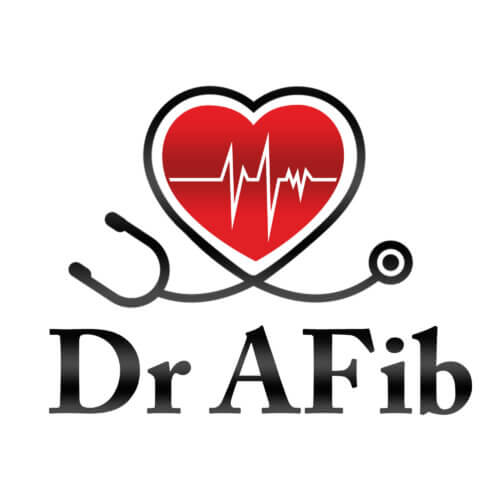














![Apple Watch Series 9 [GPS 41mm] Smartwatch with Storm Blue Aluminum Case with Silver Sport Band M/L. Fitness Tracker, Blood Oxygen & ECG Apps, Always-On Retina Display #1](https://m.media-amazon.com/images/I/311xwtp4mFL._SL100_.jpg)
![Apple Watch Series 9 [GPS 41mm] Smartwatch with Storm Blue Aluminum Case with Silver Sport Band M/L. Fitness Tracker, Blood Oxygen & ECG Apps, Always-On Retina Display #2](https://m.media-amazon.com/images/I/41j+8AaUGsL._SL100_.jpg)
![Apple Watch Series 9 [GPS 41mm] Smartwatch with Storm Blue Aluminum Case with Silver Sport Band M/L. Fitness Tracker, Blood Oxygen & ECG Apps, Always-On Retina Display #3](https://m.media-amazon.com/images/I/41jIyxZitnL._SL100_.jpg)
![Apple Watch Series 9 [GPS 41mm] Smartwatch with Storm Blue Aluminum Case with Silver Sport Band M/L. Fitness Tracker, Blood Oxygen & ECG Apps, Always-On Retina Display #4](https://m.media-amazon.com/images/I/41IpNJERjCL._SL100_.jpg)
![Apple Watch Series 9 [GPS 41mm] Smartwatch with Storm Blue Aluminum Case with Silver Sport Band M/L. Fitness Tracker, Blood Oxygen & ECG Apps, Always-On Retina Display #5](https://m.media-amazon.com/images/I/31o17yhfYpL._SL100_.jpg)





























